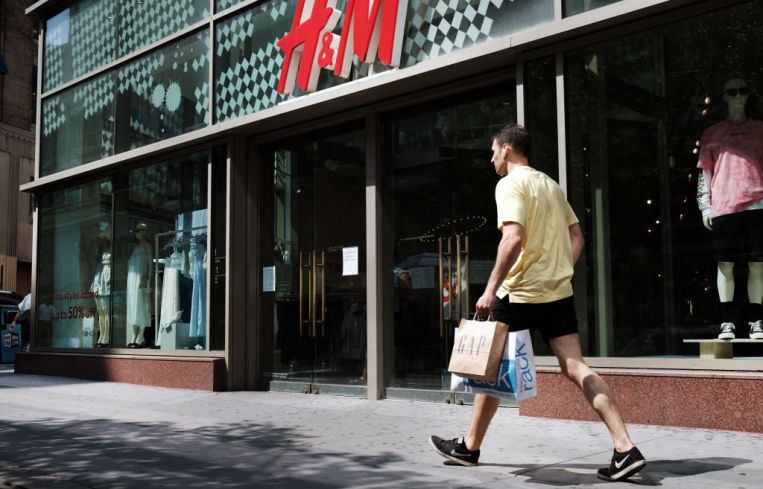Despite CRE Issues, Brokers at ICSC Confident Retail Sector Will Be Fine
By Mark Hallum December 7, 2023 3:56 pm
reprints
Retailers were right to scoff at the potential of a recession at last year’s Innovating Commerce Serving Communities (ICSC) New York, and that’s given them even more optimism that retail would dodge any major headwinds.
Whether or not a recession still looms over commercial real estate, retail brokers at the 2023 conference at the Javits Center said there’s still growth in the sector even with some malls dying, office landlords handing keys to lenders, and the construction pipeline stalled due to high interest rates.
“Our biggest obstacle is perception,” Alex Sagues, a broker out of CBRE (CBRE)’s San Francisco office, said.
Despite the negative headlines, Sagues said urban retail is prevailing in his city, where offices may be in a state of distress, but the tourism industry is as strong as it was pre-pandemic and people are still buying things at brick-and-mortar stores.
“What people don’t realize is that retail was really challenged in San Francisco before COVID, so rents have come down a little bit, specifically in Union Square,” Sagues said. “In the last three months, San Francisco has really turned the corner.”
And while e-commerce has boomed, Sagues’ colleague Brandon Isner said retailers want brick-and-mortar stores to support online sales and act as convenient customer service hubs where people can make returns — and shop some more.
Isner added that luxury European brands have been particularly active in the market, with French clothing brand Saint Laurent recently signing on for 13,000 square feet in New York City.
“The European luxury brands are still looking at the usual suspects here: San Francisco, L.A., Miami,” Isner said. “Those are the safe bets, but they’re also looking at places like Charleston.”
Many are wondering if the country is gearing up for a recession or settling down for a soft landing. Regardless, the retail market doesn’t remotely resemble an economy on the verge of a recession, according to Naveen Jaggi, president of retail real estate at JLL (JLL).
“How can you have a recession when you have low unemployment?” Jaggi said. “Do we have a real estate recession on evaluations? Absolutely. Capital Markets are frozen because of the high debt costs. So do we have a consumer recession? We haven’t heard that yet.
“Consumers haven’t really pulled back yet, and retailers aren’t talking about a significant pullback,” Jaggi added. “The little that we’ve seen is directly related to the war in the Middle East.”
But it’s not all smooth sailing. Sagues said that San Francisco’s hospitality boom is being hampered by the number of hotels that can be built, which has slowed thanks to high interest rates and political opposition in the Bay Area to development other than housing.
Much like with tourism in San Francisco, the supply pipeline for new retail is threatened by high lending rates. That might be a win for mall owners who stayed alive during the so-called “retail apocalypse,” according to Jaggi.
Jaggi said the U.S. at its peak had about 1,500 malls and is now standing closer to 900.
“That tells me that it takes a long time for a mall to go away,” Jaggi added.
Even if there still isn’t much concern over a downturn, there will be dry periods for retailers between the holidays and Valentine’s Day when lower-income consumers will be in saving mode, according to R.J. Hottovy, head of analytical research at Placer.ai.
“The middle- and upper-income consumers are still holding very well,” Hottovy said. “I think most people aren’t really looking at a recession. They’re just expecting volatility.”
Mark Hallum can be reached at mhallum@commercialobserver.com.


